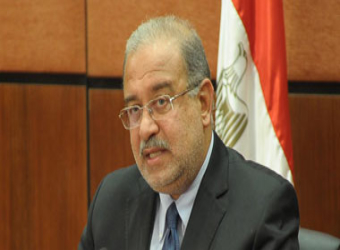Egypt will need to import an additional $1 billion worth of petroleum products and secure significant natural gas supplies as it scrambles to meet energy needs for the summer, Oil Minister Sherif Ismail has told Reuters.
One government after another has struggled to cope with energy crunches, and Ismail said this coming season would be no exception.
Failure to find a solution could frustrate Egyptians, who rioted in the past over long lines at gas pumps just before the army toppled Islamist President Mohamed Morsi.
Political turmoil since a popular uprising ousted autocrat Hosni Mubarak in 2011 has paralysed decision making. Disarray in the energy sector will take time to fix, even after a new government replaces the army-backed interim administration.
“Of course there are needs,” said Ismail, adding that efforts to import badly needed natural gas may not succeed.
“The intention is to (make available) liquefied natural gas (LNG) and (to get) LNG facilities in operation before the summer …It is our prime concern and intention to solve this problem if not for this year by 100 percent then at least for the years yet to come.”
Egypt in October tendered for a floating terminal needed to import LNG. An official said at the time that the government wanted the terminal in place by April, before temperatures rise and consumption spikes.
The tender has not yet been awarded, and experts say that time has run out for a terminal to be delivered and installed before the summer.
Ismail said the alternatives to importing LNG include shifting to using more expensive fuel oil and encouraging Egyptians to conserve energy during peak hours.
These steps may not suffice. Analysts say about 75 percent of electricity production in Egypt is dependent on gas, not fuel oil.
Saudi Arabia, Kuwait and the United Arab Emirates extended an economic lifeline to Egypt after the army ousted Morsi after mass protests against his rule.
Deeply mistrustful of Morsi’s Muslim Brotherhood movement, these Gulf Arab states pledged billions of dollars to the army-backed government, including petroleum products.
Egypt has said it has received $4 billion in fuel products from Gulf nations since Morsi’s ouster. Ismail said Egypt would require more imports for the summer.
“The first estimate…is that we will need to import petroleum products of around $250 million per month during the four summer months,” Ismail said in an interview.
Not all Gulf countries were generous with the government after Morsi’s ouster. Qatar, which backed the Brotherhood, sent Egypt LNG shipments last summer but negotiations for further supplies stalled over political tensions.
The growing population of 85 million has kept energy demand steadily rising so that it now outstrips the production of oil and gas from fields in the Western Desert, Nile Delta and offshore.
Compounding the problems, the government fell into heavy debt to foreign energy firms which Egypt needs to help it exploit gas reserves that could enable the country to end power cuts and bolster export income.
Instead, surging demand has caused Egypt to divert high levels of gas produced by foreign companies such as BG Group and promised to them for export.
Ismail said that “the gap between production and consumption” is caused mainly by the fact that Egypt has not developed its available reserves.
SUBSIDY BURDEN
Egypt’s energy troubles weigh heavily on the economy. Talk of cutting fuel subsidies costing $15 billion a year has produced limited results.
Successive governments have feared that raising energy prices could trigger unrest in a country where street protests have helped remove two presidents in three years.
Ismail, an engineer who held senior posts at several state-run energy firms before his appointment as minister last July, says the interim government will take the first steps in a reform programme that would see subsidies cut by 25 to 30 percent in five to six years.
A smart card system for fuel purchases by drivers launched during Morsi’s year in office should be operational within three months, he said. The government hopes the initiative will allow it to analyse fuel consumption data before enacting reforms.
Ismail acknowledged that subsidy spending in 2014 could exceed the targeted 140 billion Egyptian pounds ($20.11 billion), saying that industrial needs may increase in the second half of the financial year which ends in June.
“The subsidy issue is crucial,” he said, adding that increasing energy consumption and the government’s target of seven percent economic growth requires subsidy reform and efforts to diversify the energy mix.
“Ninety-five percent of energy consumed depends on crude oil and natural gas. The current energy mix doesn’t really work for Egypt, it is not secured, it is not economical, and it is not sustainable,” he said.
For now, Egypt is aiming to increase its natural gas output even as the companies that produce it warn that political and economic turmoil will lower their output.
Ismail said that Egypt aims to increase its natural gas output by 1,800 million cubic feet this year, up by 35 percent from the current production level of 5,100 million cubic feet.
His ministry forecast last week that gas production in the next fiscal year, which begins in July, would fail to meet surging domestic demand.
Ismail said that the government was in talks with BG Group to speed up the process of getting Phase 9A of its West Delta Deep Marine offshore natural gas project on-stream. The latest drilling phase of that project fell behind schedule last year.



